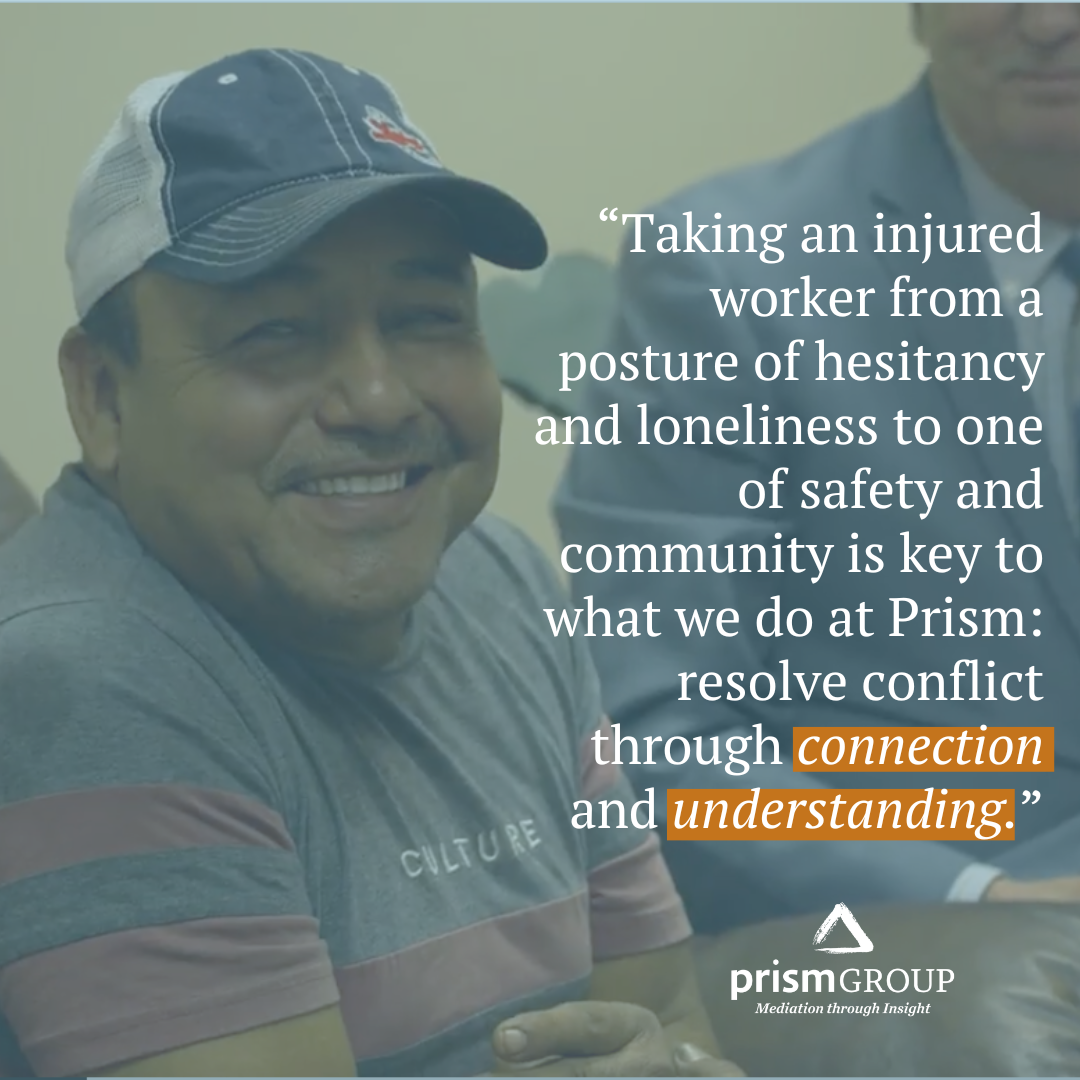Translation Please (Or Something More?)
Have you ever tried to order food in a foreign country? How about tell a 3-year-old why they have to wear sunscreen at the beach? Ever been in an argument with a spouse, friend or coworker that seems to just keep going round and round?
We’ve all experienced the challenge of communicating in different languages.
The same way the Peruvian mountain chef doesn’t understand your request for “gluten free” food, a child doesn’t understand UV protection, and often our loved ones don’t understand our desire for connection when it’s cloaked in yet another discussion about the dishes.
We’re speaking different languages: sometimes figuratively, sometimes literally.
When it’s literal, Prism Group relies on Maria Quintero Edwards as our in-house Spanish Language Assistant. A native Venezuelan, Maria came to the US when she was 15 and is trained by the courts as a legal interpreter and translator.
Maria Quintero Edwards
When speaking with Maria about her role at Prism, she says through her signature smile, “Please, can I be called something besides an interpreter? An interpreter must repeat exactly what someone says. They are not allowed to say anything besides what they hear and repeat it back. An Interpreter must speak in first-person [”I,” “me,” “my”], in chunks, very slowly. It’s very formal.What I do is different.”
When asked to explain, Maria says that of course legally and ethically, she is not allowed to express conflicting ideas, offer her opinion or “judgement” on a situation, but that often she has to explain to Spanish-speaking injured workers what their options are and how the system works. Because the system can often feel confining and confusing, Maria’s role extends beyond a mere word-for-word translation and into the territory of compassion, reassurance, and understanding. Many times, injured workers have questions, and because Maria has done this work for years, she’s able to anticipate these questions and tell other parties in the room what the injured worker is asking.
Maria says when injured workers show up for mediations in which her assistance is required, they can sometimes be withdrawn, reluctant to speak, and nervous.
She enjoys reassuring them, earning their trust, and helping settle their nerves with a warm smile and their native language coming out of her mouth. Taking an injured worker from a posture of hesitancy and loneliness to one of safety and community is key to what we do at Prism: resolve conflict through connection and understanding.
For this reason, we, too, agree that Maria is so much more than an interpreter for us. She is not just parroting what we say, she’s bridging a cultural gap that none of us on the Prism team could do as effectively as someone born and raised in South America. According to Maria, many Spanish-speaking claimants are from Honduras, Mexico, the Dominican Republic, and Nicaragua. While they work in America, their home lives, backgrounds, morals, ethics, dreams, and hopes all rest on the backdrop of their culture— no differently than Americans’. Having someone in the room who can directly relate to this backdrop is invaluable.
Our relationship with Maria is equally as important as her relationship with the claimant. We are fortunate to have built a rapport and relationship with Maria that assures us we can trust her to be honest, unbiased, and working with all parties involved in a workers’ comp dispute towards the goal we all have on mediation day: resolution.



